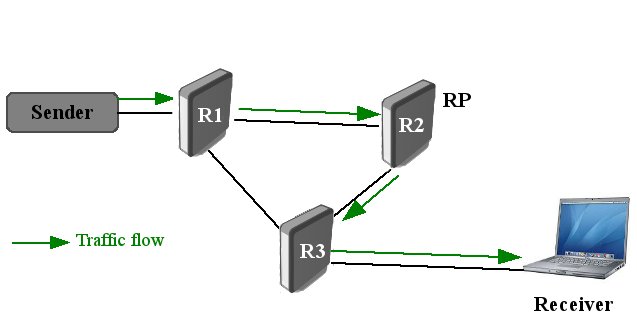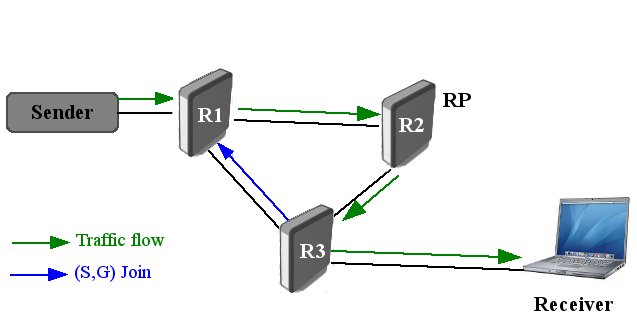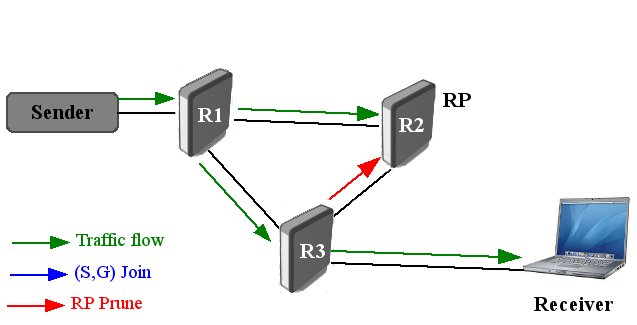Manual:Multicast SPT Switchover: Difference between revisions
New page: =Multicast SPT switchover= ==Overview== For many receivers the route via RP may not be the best path to source. To obtain lower latencies, it is possible to initiate a transfer from the ... |
No edit summary |
||
| Line 1: | Line 1: | ||
==Overview== | ==Overview== | ||
Revision as of 11:17, 9 November 2007
Overview
For many receivers the route via RP may not be the best path to source. To obtain lower latencies, it is possible to initiate a transfer from the shared tree to a shortest-path tree (SPT).
From diagram above it is obvious that traffic flow from sender to receiver through RP is not the best path. In this situation shortest-path tree (SPT) switchover comes to help. To initiate switchover, last-hop router sends an (S,G) join towards S and additional (S,G) state is created.
When join reaches S subnet or router that already has (S,G) state, data packets from S start to flow following the (S,G) state until they reach the receiver. Now receiver will be receiving two copies of the data - one from the SPT and one from the RPT. At this point additional (S,G) state is created along shared tree to prune off traffic through RP.
This is known as an (S,G,rpt) Prune. The Prune message travels hop-by-hop, instantiating state along the path towards the RP indicating that traffic from S for G should not be forwarded in this direction. By now, the receiver will be receiving traffic from S along the shortest-path tree between the receiver and S.
Configuration
For this configuration three routers will be used - R1,R2 and R3. Router R2 will be used as RP and multicast traffic will be send to address 224.1.1.10.
Configuration for all three routers are the same and is quite simple.
- Enable switchover option:
/routing pim switch-to-stp=yes switch-to-spt-bytes=20000
- Add interfaces and RP:
/routing pim interface add all /rputing pim rp add address=<R2_IP_address>
Testing
To test configuration, you can use VLC to launch multicast stream Download it from [1] Simple streaming how-to: [2]
After the stream is launched you can check all PIM created join states.
/routing pim join print
Flags: RP - (*,*,RP), WC - (*,G), SG - (S,G), SG_rpt - (S,G,rpt)
GROUP SOURCE RP
WC 224.0.0.0 10.55.2.1 10.55.2.1
SG 224.1.1.10 0.0.0.0 10.55.2.1
224.1.1.10 10.1.101.225 10.55.2.1
SG_rpt 224.1.1.10 10.1.101.225 10.55.2.1


